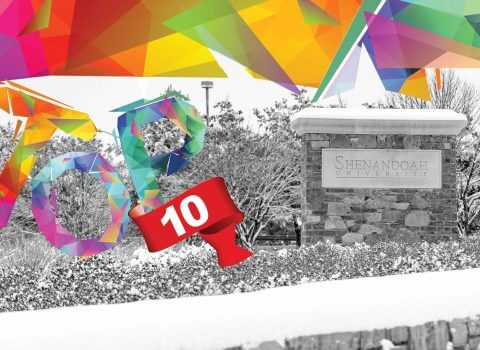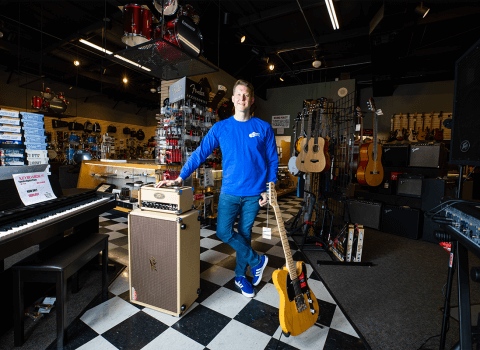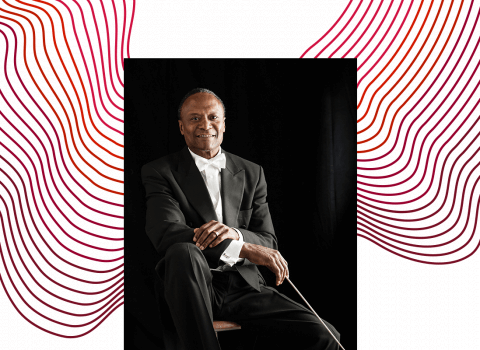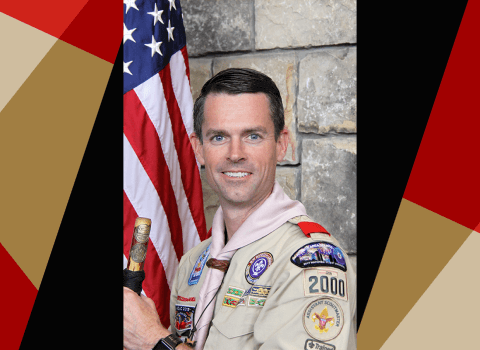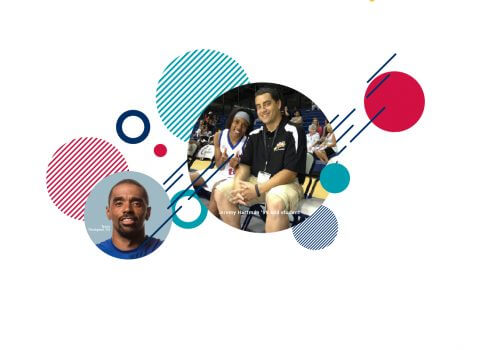Travel can broaden the mind and fill the soul.
But sometimes, it’s hard to know where to start the journey. At Shenandoah University, students have a variety of options when it comes to international travel. They can write essays to compete for a slot on a week-long Global Citizenship Project trip or arrange for a semester abroad.
Or. . . they can choose something in-between: A Global Experiential Learning (GEL) program trip, which, according to Patricia Whiting, education abroad advisor for Shenandoah’s Center for International Programs, “offers students a short-term, faculty-led, study-abroad experience for academic credit.”
Since the GEL program’s inception in 2000, students have traveled to approximately 30 nations, including Argentina, China, France, Ireland, Italy, Poland, Russia and Thailand. Summer trips in 2016 sent students to Fiji to study the psychology of happiness, Switzerland to consider global public health, and Poland to to learn about how special education services are delivered there. Students also studied business in Brazil and theatre in England.
GEL trips, which usually last around 10 days (some are a bit shorter or longer) during summer, winter or spring breaks, “make the world a learning laboratory for students, providing deep exploration into individual fields of study, the opportunity to understand where the United States fits in terms of the world viewpoint, and the ability to enhance skills in cultural sensitivity, flexibility, and capability to adjust and adapt,” Whiting said.
Unforgettable Learning Experiences
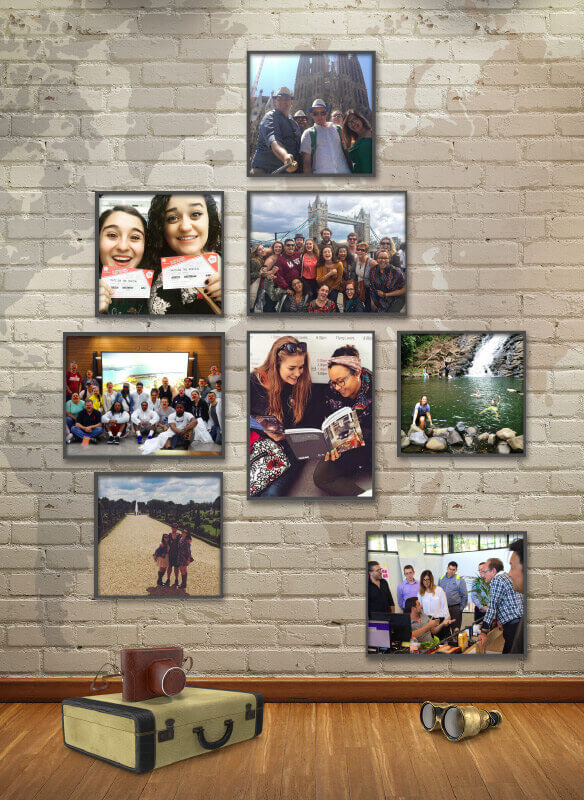
“GEL Poland was the best experience of my life,” said Amanda Kicker ’18, who is majoring in biology and studying secondary education. “The trip’s focus was on learning about about how special education services are delivered in Poland now that the country has signed on to the U.N.’s Convention on the Rights for Persons with Disabilities (CRPD),” said Associate Professor of Curriculum and Instruction, Diane Painter, Ph.D. “We were invited to tour three schools around Wroclaw and share our ideas for inclusive educational practices with the schools’ staffs and our host, a special education professor at the University of Lower Silesia, who arranged the tours.”
“Dr. Painter made sure that each of the attendees learned something about their specific field whether it be nursing or history related,” Kicker said. “I recently changed my major and this trip made me sure of my decision to study education. Not only did we travel to three different schools working towards inclusion, but we traveled to Krakow to Auschwitz and Birkenau concentration camps. The history in a book or in a movie is nothing compared to walking where those prisoners walked.”
Students (both graduate and undergraduate) prepared for the trip in several ways, Painter said. They attended a dinner at her home, where an attorney spoke about The Convention on the Rights of Persons with Disabilities (CRPD), an international human rights treaty of the United Nations, and they studied a Painter-created iBook, “It Takes a Village,” which reviews the CRPD and a variety of issues related to disability awareness. The book is part of an iTunesU course she created that can be found in the Shenandoah University course domain. The course is called “‘Please Accept Me for Who I Am.”
Nursing, physician assistant and pharmacy students traveled to Geneva, Switzerland, in May to attend the World Health Organization’s (WHO) 69th World Health Assembly (WHA) to learn more about global health policy. Students wrote issues briefs in preparation for the trip, and then, when in Switzerland, saw how policy is discussed and developed in the global landscape.
“GEL Switzerland represented a course change for me in my life and career, and I found attending the World Health Assembly (WHA) 69 particularly humbling,” said physician assistant studies student Judith Pascarella ’17. “I learned a great deal about how global health leaders interact and the processes that govern change. I had so many meaningful experiences in this trip that allowed me to not only network with global health leaders, but also those individuals on the forefront who are making the changes discussed at the highest levels on the international stage.
At the conclusion of the trip, the strongest take-away for me was that education, preventative health, secure systems, government support, and funding are the keys to success in global health initiatives,” Pascarella added. “It is essential to be proactive rather than reactive. As the message spreads, the hope is that public health will become a natural part of daily governance rather than an afterthought. It felt like a lot of progress was made this year, and it was an unforgettable honor to be invited to attend history in the making.”
From Health to Happiness
Those who journeyed to Fiji used their trip to study happiness in a place often called the happiest on earth.
“Happiness is a growing field of study in psychology and one that Shenandoah hasn’t had in our psychology curriculum, so I built a course around the study of happiness, and if/why Fiji is indeed the happiest place on Earth,” said Associate Professor of Psychology Scott King, Ph.D.
Shenandoah students spent time with both students at Fiji National University and people living in small village on Kioa Island. “My most memorable part of the trip was the moment I learned why they were so happy,” said Lora-Maria Koytcheva ’19. “I spoke with various families, and people throughout Fiji, and they all equally expressed their love for their country. Studying their answers, I discovered that it is because these people are content with their lives and what they have. Being there really showed me that these people are happy with what they have, are surrounded by family, and are very close with their religion. They are not so much worried about competing with others. Especially in the villages, families wake up every day smiling and surrounded by love – you can really feel the happiness in the atmosphere wherever you are in Fiji! They go about their daily tasks, but they do it on Fiji time – so it will get done whenever it gets done! No rush, no deadlines to meet… no stress.”
A perspective on history, an understanding of special education in another nation, an intimate view of global health policymaking and an immersion in a renowned culture of happiness more than half a world away – not bad for a little more than a week of travel and some stateside preparation.
So what does GEL have in store for 2017?
The 2017 GEL locations are set! Course offerings include trips Switzerland, New Zealand, Spain, and others. For a full list of course offerings, visit the program page online at www.su.edu/gel.
